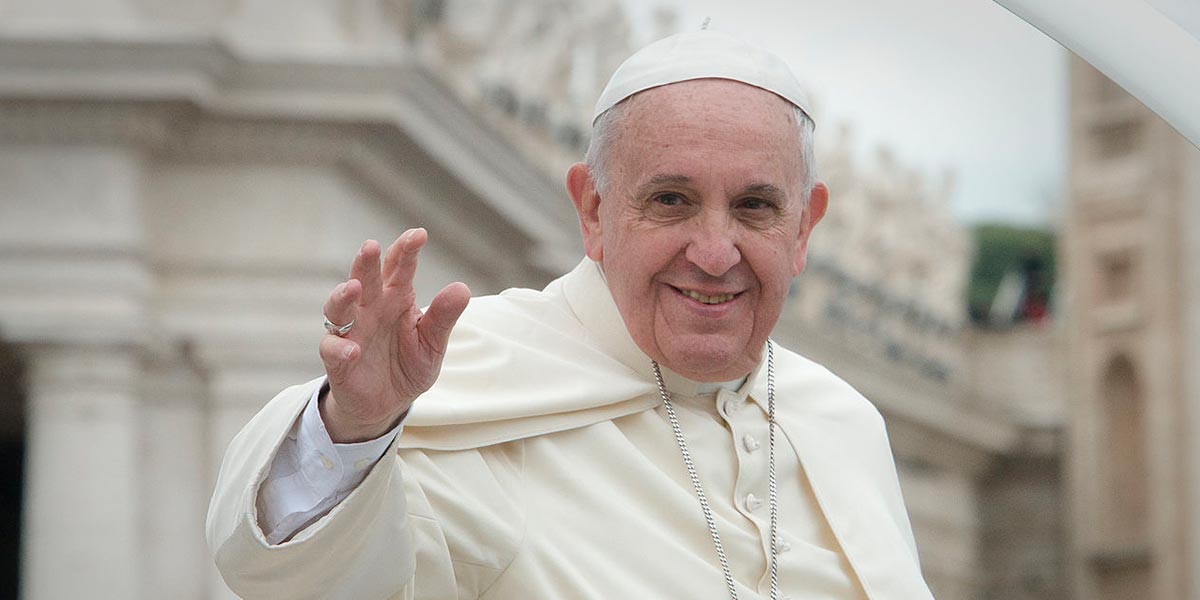
A well-known LGBTQ+ Catholic advocate claims that transgender and non-binary people are subjected to discriminatory ideas in the Vatican’s most recent gender identity declaration.
The document, Dignitas Infinita (Infinite Dignity), was released on 8 April and asserts the church’s view on the inherent dignity of each person.
The document supports a restrictive binary view of gender in the midst of a growing global debate on transgender identities and experiences, which is becoming increasingly contentious and dehumanizing. In the church’s effort to be more welcoming and accepting of LGBTQ+ people, it is seen as a move backward.
The declaration somewhat lists some threats to people’s respect, such as abortion, war, poverty, and surrogacy, as well as so-called “gender theory”, including gender-affirming procedures.
It states that “Any sexual-change treatment, as a rule, risks threatening the special respect the person has received from the moment of conception.”
In the statement below, Francis DeBernardo, Executive Director of American LGBTQ+ Catholic organization New Ways Ministry, responds to the release of Dignitas Infinita.
The new Vatican report, Dignitas Infinita, fails badly by offering transgender and nonbinary individuals not eternal, but limited human dignity. While it lays out a great rationale for why each individual being, regardless of condition in life, should be respected, honored, and loved, it does not apply this principle to gender-different people.
The document draws on the antiquated theology of gender essentialism, which asserts that a person’s physical appearance is the main indicator of a person’s biological gender identity, in its approach to sex. The Vatican is shackled to the growing awareness that a person’s identity includes all of their biological, social, and moral dimensions.
Gender identification is not based on a person’s choice; rather, it is based on recognizing who God created each of us to be, taking into account factors like one’s biological makeup.
The Vatican’s claims and conclusions regarding gender identity and gender transitions undermine its attempt to preserve and defend human dignity. They also demonstrate that they did not take into account developments in gender in the physiological, psychological, and social sciences. Worse still, it demonstrates that the authors did not pay attention to the lived experiences of those who discovered, often after terrible and painful journeys, that God had a gender identity beyond social expectations, often determined by physical appearance.
The creators of this report abdicate their duty to uphold the dignity of transgender and nonbinary people by dismissing this growing awareness of the experiences of gender as “gender theory.” The authors ignore the historical notion that cultures around the world and throughout history have recognized and celebrated gender identities beyond the religion’s claims of a male/female gender binary by categorizing LGBTQ+ inclusion as a European phenomenon imposed in a colonial manner on different cultures.
If ideological gender theory and colonization exist in the world, it exists in the schema outlined by this document where a person’s gender is based on physical appearance, and that only two genders, male and female, exist in human reality. The rich diversity with which God created the world is undermined by recent discoveries and experiences that church leaders’ thinking about transgender and nonbinary people is sorely lacking.
The document should not be dismissed as merely an abstract theological discussion with few practical applications. Rather, the Vatican is again supporting and propagating ideas that lead to real physical harm to transgender, nonbinary, and other LGBTQ+ people. They are harmed by the very violence which this document condemns in economic, psychological, spiritual, social, and most tragically, physical forms, resulting in grave damage that often leads to death.
The Catholic faithful have already embraced this, while Vatican officials do not yet understand the infinite dignity of transgender and nonbinary people. Catholics, especially the laity but even some bishops, have come to know, accept, and love people with diverse gender identities. The LGBTQ+ positive faithful will urge church leaders to better apply Catholic social teaching to the realities of today’s gender and sexual identities, as has been the case in many other instances.
— Francis DeBernardo, New Ways Ministry



